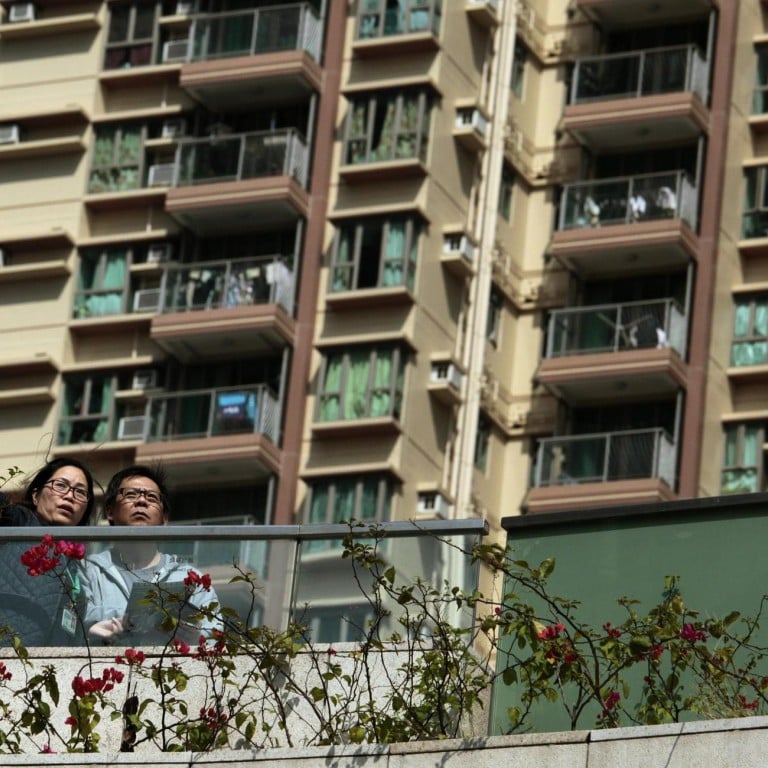
Foreign buyers still find premium on Hong Kong property worth paying
While we put every move regarding property under a critical microscope, outsiders see little fault and draw comfort from the processes
It was salutary to step back from Hong Kong's current local "hot house" environment recently, and spend some time in Europe, meeting with international investors.
In particular, it was interesting to listen to external views on Hong Kong as an investment destination or as a base from which to invest in the region, since there is a risk that in the absence of these exchanges we become so enmeshed in immediate issues that we are in danger of forgetting the bigger picture.
Obviously the oft-quoted benefits of the rule of law, freedom of speech, a low-taxation regime, and the relative absence of restrictions on financial flows, are considered important by international investors. However, of even greater significance are the underlying basic fundamentals that form the platform for real estate and other investment in the city.
Of greatest significance is the transparency of the market, which is regarded as second to none; and the access to accurate and current transactional information through the Land Registry and the Rating and Valuation Department.
The outcome is a knowledgeable and "market-savvy" investment community where purchasers and vendors and landlords and tenants and their advisers are able to transact with access to reliable and comparable evidence and information.
Hong Kong also possesses the largest appropriately qualified and experienced group of property professionals in the region and informed opinion on capital and rental value, investment returns, prospects for growth, and market sector performance, is readily available. Furthermore, many of those professionals can also advise on investment outside Hong Kong; and there are many cross-border practitioners who can provide guidance on opportunities and projects across most of the markets in Asia and assist those who wish to invest in any of the mature or emerging economies of the region.
Many cross-border property funds and portfolios are run and managed from Hong Kong, again emphasising the depth and breadth of the skill base that Hong Kong possesses.
Another aspect which investors consider is to Hong Kong's advantage is that of certainty, which is a function of our land tenure and town planning regime. And the fact that we operate on a leasehold system, as do most markets in the region, is not seen as a disadvantage.
Indeed, the Government Lease, readily available from the Land Registry, very clearly yet simply sets out what can and cannot be done in respect of any particular piece of land in terms of use and development potential, offering both the clarity and security that is essential from an investor's perspective.
This certainty is further supported by Hong Kong's land-use planning system and the citywide overlay of outline zoning plans which, adopting a relatively broad-brush approach, reinforce the use, density, and, more recently, the height to which any site can be developed.
Often criticised as too rigid by local commentators, the fact that the planning system is not over-prescriptive as is the case in many other mature jurisdictions, and the certainty of process and timing in relation to any who wish to seek to change the use or planning conditions of a particular site, is regarded as a major plus.
Our building regulations, which also have their local critics, compare favourably with other systems elsewhere, and the fact that there are fixed periods within which the government has to respond in relation to approvals and consents is regarded particularly positively.
Although the process has become more complicated of late, our time-sensitive building plan approval system does put the territory ahead of its competitors and is responsive to the situation where high land values/costs necessitate as speedy an approval process as is practicable.
The recent government responsiveness to land supply challenges, in respect of both the residential and commercial sectors, is also regarded positively, albeit seen as somewhat of a rearguard action to make up for the previous lack of decisiveness.
The fact that there is clarity in terms of targets and a road map of proposed sales and land conversion initiatives brings greater confidence to those who are looking for clear signals and direction from a policy perspective.
One interesting comment from investors concerned a perceived need for a more structured focus and approach in outlining the way forward since there was, in their view, too many mixed messages from those claiming to be in the know.
Finally, there was much discussion around capital and rental values and the cost of living and doing business in Hong Kong. Interestingly, there was general acceptance that Hong Kong should attract a premium given the access it provides to mainland China and its pivotal physical location in the region.
The debate therefore centred more around the quantum of the premium and, given the quality- of-life challenges currently being experienced, whether that premium was too high.
In general the view was that if issues around air pollution, particularly in terms of the built environment, access to more school places, etc, were addressed, then Hong Kong's competitiveness and relevance was not at risk and would not be jeopardised and the current level of premium was justified.
I returned to Hong Kong more encouraged than when I left and refreshed by the discussions with those who clearly believe in Hong Kong as an investment opportunity or operational base.
Granted, there is much we can still do locally to fine-tune the situation.
But it is encouraging to hear that the fundamental infrastructure, systems, and processes which reflect Hong Kong's unique characteristics are valued and appreciated by the overseas investment community.

